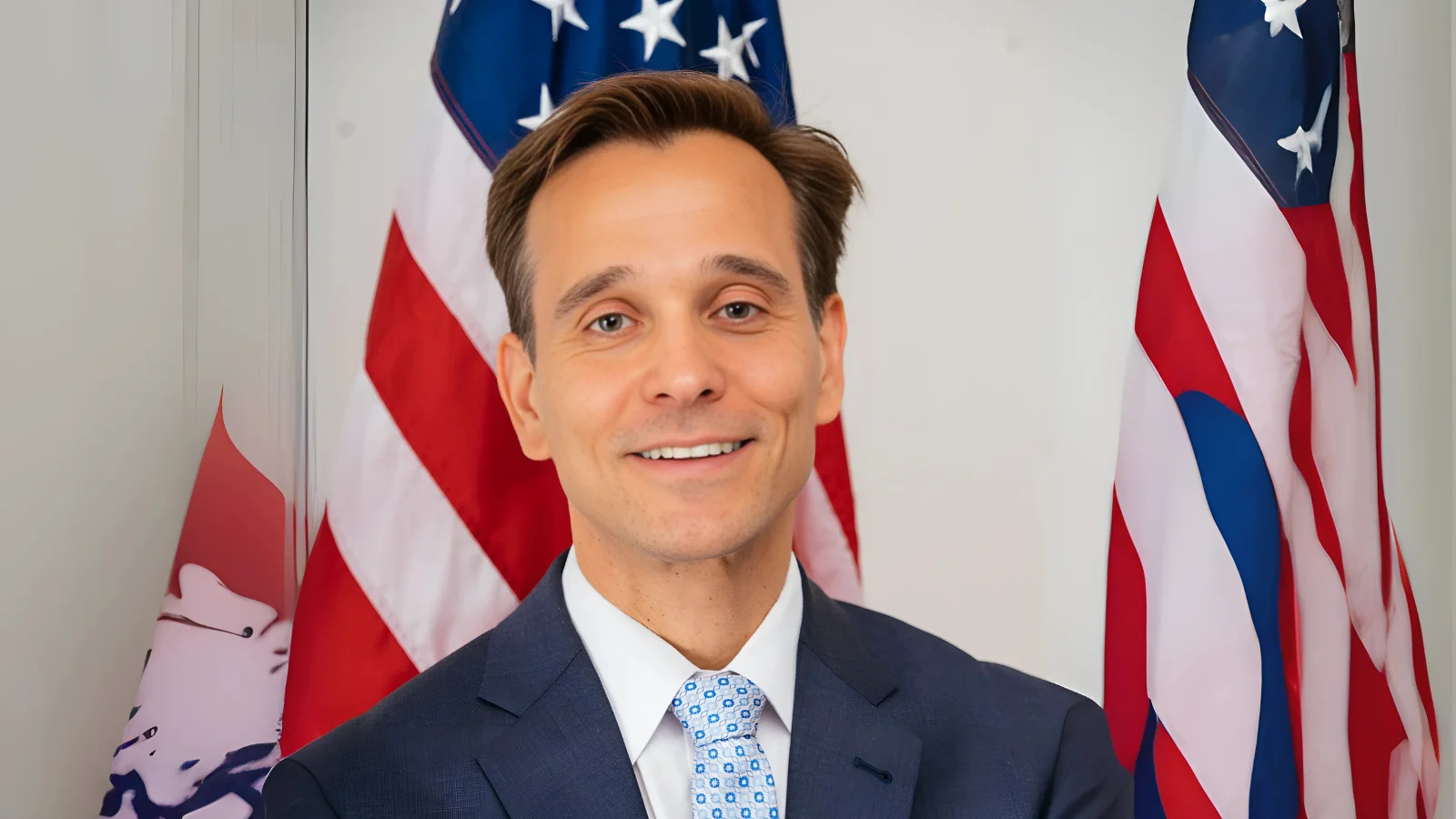Charge d’Affaires Huck spoke at the 5th Thessaloniki Metropolitan Summit organized by The Economist, addressing key issues related to energy security in Europe. In his remarks, Huck thanked the event organizers and panelists, noting his past experience working in Washington as Deputy Assistant Secretary for European Affairs and his familiarity with Thessaloniki from previous diplomatic postings.
Huck highlighted the economic progress of Thessaloniki and attributed it to effective local and national governance, resilience among residents, and human capital in the region. He emphasized that U.S. investment has contributed to this development.
Discussing energy security, Huck said: “I’ve had a chance to be back in Washington since the very first days of this new administration and very much we see energy security as a key and fundamental part of an overall broader European transatlantic security picture. I think one of the key lessons that we’ve learned over the last several years is the danger of overreliance on Russian energy. We’ve seen that on the economic side with supply disruptions and all of the unpredictability that that brings. I actually remember a very cold winter that I was living in Bulgaria, where the gas had been turned off by Russian suppliers to make a political point. And I think many around the table or around this room probably have had that experience or been affected by that in one way or another. But on the political side as well, I think we’ve seen those negative effects of the overreliance on Russian energy.”
He described how consensus has grown among governments in Washington, Brussels, and across Europe about building new infrastructure to reduce dependence on Russian energy supplies. Projects such as the vertical corridor—an initiative linking Greece northward through Bulgaria, Romania, Moldova, and Ukraine—are central to these efforts.
Huck explained: “Partly obviously because it breaks this traditional monopoly that Russia has enjoyed, where all the transmission of energy has been east to west. This creates a new possibility, a counter to that, to provide additional competition going from north to south, from Greece to Bulgaria, to Romania, Moldova and onto Ukraine and this is critical. It provides that competition that’s so essential, both from a political and an economic lens.”
He outlined three main areas needed for success: infrastructure upgrades along existing pipelines; harmonization of regulatory frameworks including tax treatment for LNG shipments; and stronger partnerships between suppliers and buyers along these routes.
According to Huck: “Now a lot of the pipeline, the infrastructure already exists, but to increase capacity... there are key improvements that need to be made along the route... But it’s something that the US has played a role in as well here, particularly in Greece where the US has committed through our DFC Development Finance Corporation, 125 million to the Elefsina shipyards to make them able to maintain and support LNG ships so that more LNG can be brought into Revythousa and into the pipeline. Of course also floating storage and regasification unit at Alexandroupoli as US firm; Venture Global is primary player there.”
He added: “An LNG provider needs to know when they’re shipping to Greece and into this vertical corridor what will be prices and treatment... So that's another important piece.”
Huck concluded by emphasizing broader benefits beyond just energy: “We don’t look at it in theory as only an energy route but could also be transportation route... When you create those linkages from south-to-north rail road as well as energy you’re bringing people together… good for governments… stability… individuals communities businesses all way along.”

